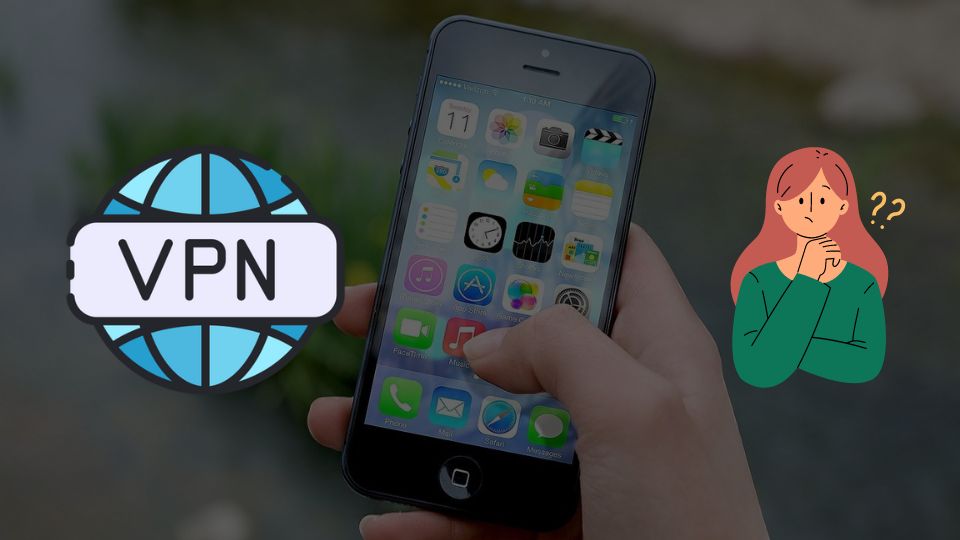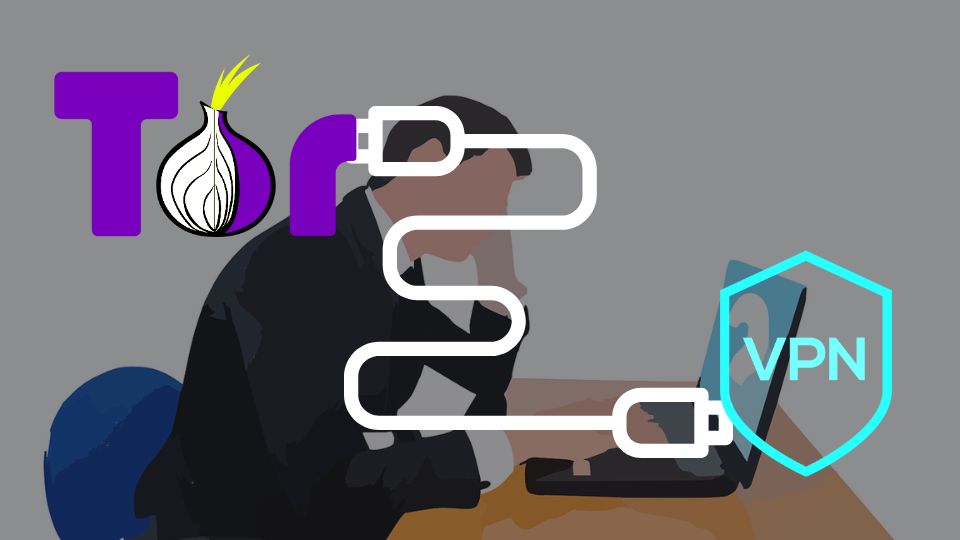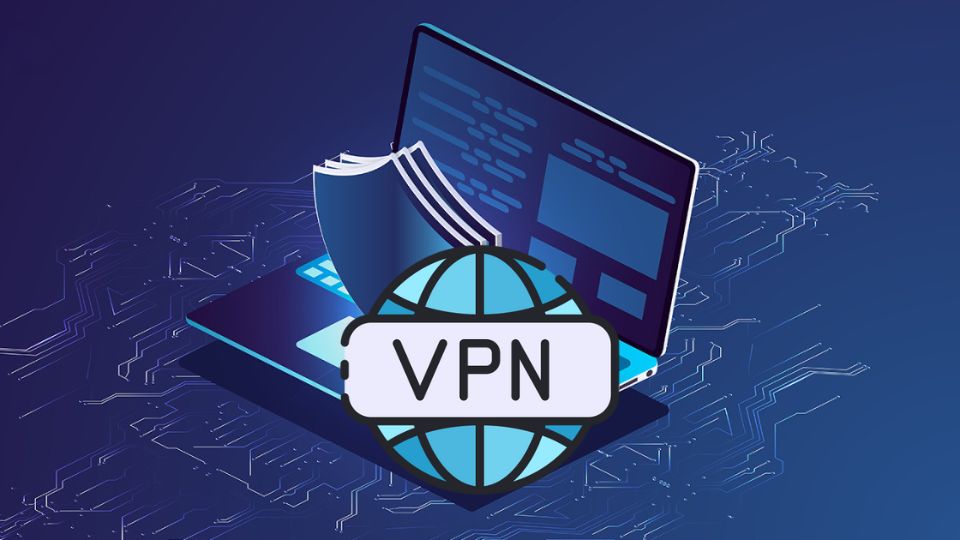This post may contain affiliate links. As an affiliate, we earn from qualifying purchases. We get commissions for purchases made through links in this post.
When you’re connected to a cellular network, such as LTE 4G, or 5G, your device is always in contact with the nearest cell tower. Anyone seeking unencrypted traffic can see what you’re doing online, which could be a security risk. By encrypting all traffic passing through your phone, a VPN can help defend your privacy. In this article, we’re going to discuss why you should use a VPN on your cellular network and how it can help keep your data safe.
Your mobile phone provider has access to a great deal of data about you. This is because you’ve already provided them with your identity when signing the contract. Even if you have a prepaid plan, a company like T-Mobile or Verizon can keep surveillance on your online activities in a variety of ways. This includes information about the websites you visit, the torrents you download, and the amount of time you spend using such services.
Do you need a VPN if you use mobile data?
Some people argue that running a VPN when using a cellular network is unnecessary because the carrier will still be able to detect that you are using a VPN. Certainly, this is inevitable because you must first connect to a VPN server, and this is something that mobile network providers will always see. However, after you’ve connected to a VPN, the carrier will no longer be able to track your online activities. So, if you use a VPN on your phone, you can block others from seeing your browsing history, streaming service usage, the use of messengers, and other activities that you do online.
VPNs are not just for people who use public Wi-Fi hotspots. In fact, using a VPN on your cellular network is more important than ever because of the increasing number of cyber threats that exist today. Getting some extra protection with AES-256 encrypted VPN tunnel will never hurt, especially when it comes to sensitive data like online banking, shopping, or private conversations.
What are the risks of not using a VPN on your phone?
While the risk is lower when using the Internet via public Wi-FI hotspots, there are still some security issues that have more chance to happen if you’re not protecting your mobile data with a secure VPN.
Here are some of the worst security risks when using a cellular network without a VPN:
- Your data can be monitored by your mobile carrier
- Hackers can intercept your traffic and steal your information
- Your phone is more vulnerable to malware if you’re not using a VPN
- You are less secure when using mobile banking
What will you experience when using a VPN on your phone?
You will rest assured that your online activity is hidden. With your data encrypted, you can browse the web without worrying about hackers or government agencies spying on you. With a VPN, you can also unblock geo-restricted content and access censored websites. For example, you can use a US VPN server to watch Netflix US or Hulu from outside the US.
Another benefit of using a VPN on a smartphone is being able to hide your real IP and physical location (given that your location services on your phone are also disabled)
Does VPN use more mobile data?
When using a VPN, traffic will always slightly increase, but this is minimal and varies depending on the protocol and encryption methods used.
For instance, when using a 256-bit L2TP/IPSec protocol, your VPN connection will have a moderate data overhead but will provide a high level of security. Same thing with 256-bit OpenVPN. However, if you connect via the 256-bit Stealth OpenVPN, the data usage will increase significantly.
So, yes, there will be more data usage when connecting over a VPN compared to a direct connection to the Internet. On the bright side – you will get your data reliably encrypted, and, therefore protected.
Which are the best VPNs for smartphones?
There are a lot of VPNs to choose from, but not all of them are good for mobile phones. The best VPNs for mobile devices have custom apps that are easy to use and provide a high level of security.
Here is a list of the best VPNs for mobile phones:
- NordVPN
- ExpressVPN
- CyberGhost VPN
- Surfshark VPN
- VyprVPN
NordVPN
Is a Panama-based secure VPN that offers high levels of protection for your mobile data. The company has a strict no-logs policy and uses the latest security protocols, including AES-256-bit encryption. NordVPN also offers an easy-to-use app with great features, like a kill switch and malware protection. You will also enjoy its CyberSec and Double VPN features for even greater security.
ExpressVPN
Is a British Virgin Islands-based VPN that is known for its high level of security and a lot of server locations. They offer lighting-fast speeds and their mobile apps are secure and easy to install and use. It is a recommended VPN for both iPhone and Android.
CyberGhost VPN
Is a great budget choice that has highly customizable apps for both iOS and Android. It’s easy to use, offers good speeds, and with over 7693 servers it is one of the largest VPN providers on the market. CyberGhost is a good choice to use on your mobile phone.
Surfshark
You only need one Surfshark account to get the VPN app installed on all of your mobile devices. Which is a good family VPN choice. Surfshark is a young VPN provider that has quickly become popular because of its great features, like the CleanWeb feature that blocks ads, trackers, and malware.
VyprVPN
Based in Switzerland, VyprVPN is a well-known provider with an excellent reputation for security. They own and operate all of their servers which total about 700. They cover all continents, including Africa. VyprVPN mobile apps are available for both iPhone and Android. They are easy to install, have modern UI, and are easy to use.
Should you leave your VPN on all the time on your phone?
Yes, it is recommended to always use your mobile data via a VPN. This will ensure the highest data protection. Having said that, you will need to make sure you’re using only the fastest VPN providers that do not throttle your bandwidth.
Also, be sure to check that the VPN app doesn’t consume too much of your battery. If the app uses a lot of resources and the battery drains faster than normal, then consider switching to another provider or just turning off the VPN when not needed for online banking or shopping.
If you want to save some traffic and or save your phone battery, consider switching VPN off when watching YouTube or streaming music with Spotify.
What are other ways to protect your mobile data?
Aside from using a VPN, you’ll want to create a solid plan for protecting your mobile traffic when using the Internet. To effectively protect your mobile device, you’ll need some proven methods.
- Use a Firewall (A Firewall is software that helps to protect your phone from unauthorized access. It will block the inbound traffic from external sources and help to keep your device safe).
- Install anti-malware software to help protect your phone from crypto lockers and other types of malware.
- Use strong passwords on all your accounts and use two-factor authentication whenever possible. This will help to protect you from data leaks when someone gets access to your password or phishes it from you.
- Make backups of your data frequently. This way, it will have it encrypted by malware, and you will be able to recover it.
- Keep all apps up-to-date and install the latest security patches for your mobile device’s firmware.
- Don’t install apps from unknown sources.
- Make sure to check which sites you are visiting from your smartphone and check if any of those are used for phishing your credentials
- Always use HTTPS websites (the ones with a green lock icon near the domain name)
Conclusion
Yes, a VPN is needed on a cellular network especially if you want to protect yourself from hackers and data monitoring by your mobile carrier. While the risk of something bad happening via a cellular network is lower compared to when using public Wi-Fi, it’s always better to be safe than sorry. And with so many great VPNs to choose from, you’ll get your mobile phone protected with an encrypted VPN in no time.



